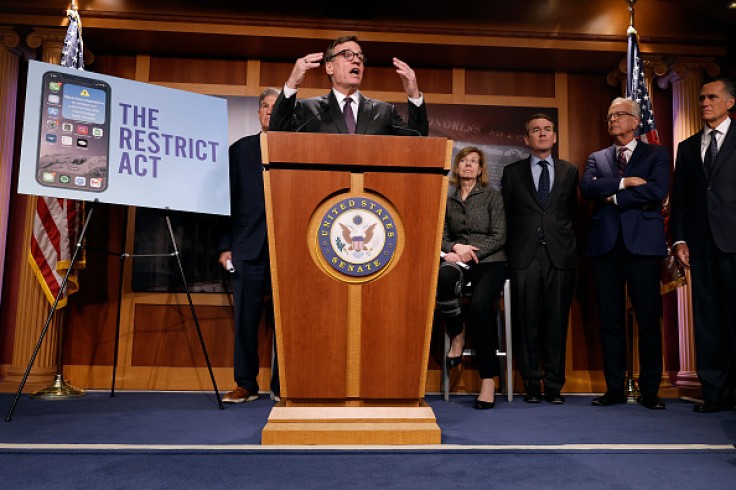The US government has been skeptical about TikTok for quite some time since reports of privacy violations. Congress has been working hard to implement a nationwide ban on the short-form video app, and the bill puts them one step closer to it.

The RESTRICT Act
The Biden administration aims to restrict access to the app to all US users, which was previously only applied to government-issued devices in fear of data being leaked to the Chinese government, given that a Chinese company, ByteDance, owns TikTok.
Senator Mark Warner led the bipartisan bill. It can be used to ban foreign technologies and companies that pose a threat to national security from operating in the US. The bill covers countries like China, Cuba, Iran, North Korea, Russia, and Venezuela.
The bill will allow US government agencies to "deter, disrupt, prevent, prohibit, investigate, or otherwise mitigate" certain services through a formal process, provided that they are a threat and has access to more than a million US user data.
Warner expressed that the US needs a comprehensive, risk-based approach that tackles sources of possibly dangerous technology before they gain a foothold in America. This could mean that other tech companies might have to cut ties with TikTok, as mentioned by The Verge.
Senator Michael Bennet, a co-sponsor of the Bill, says that the US shouldn't let any companies that could follow the dictates of the Chinese Communist Party collect data on a third of the US population. He also stated that TikTok is the first example, and it won't be the last.
TikTok CEO Shou Chew said that the company never received any request from the Chinese government regarding US user data. He added that even if that did happen, he will never comply with the request, according to CNN.
TikTok spokesperson Brooke Oberwetter countered that the bill was not needed and that the Biden administration can just approve the deal negotiated with CFIUS, which the company has been reviewing for the last six months, reports say.
Could the Biden Administration Ban TikTok?
It's quite possible, but not without going through many obstacles. Banning the app on government-issued and university devices is a different story compared to a nationwide ban that will affect over 100 million American users.
The complete ban in the US may face legal issues regarding the First Amendment, according to a fellow at the Center for Strategic and International Studies, Caitlin Chin. She expressed that democratic governments can't just ban free speech or expression without strong grounds.
Even if a device has the app after the ban's approval and app stores start to remove them, the US can still block TikTok from selling advertisements or prompting updates, says Chin, which will make it basically non-functional, as mentioned in The New York Times.
India's ban on the platform also shows just how possible it can be, as the app is no longer accessible in the country since mid-2020. This cost ByteDance one of its biggest markets, and they might just take another hit if the US bill is approved.









